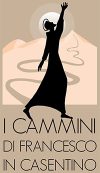Occurs annually on April 25th
Free
Restaurants and cafes open, other services may vary. Transportation and museums may be closed.
Festa Della Liberazione, or Liberation Day, is an annual national holiday in Italy, celebrated on April 25th, to commemorate the country’s liberation from Nazi Germany during World War II.
The event is marked by parades, ceremonies, and speeches held across the nation, honoring the soldiers and victims of the war.
Although it is a national holiday, most restaurants and cafes remain open, while other services like museums and supermarkets may have varying hours. In Florence, the event features ceremonies, wreath-laying at monuments, and a procession from Piazza dell’Unità Italiana to Piazza della Signoria.
In Florence, Festa Della Liberazione is celebrated with ceremonies and speeches held in Piazza dell’Unità Italiana and Piazza della Signoria. The event features wreath-laying at monuments and a procession to honor the sacrifices made during the war.
Festa della Liberazione is celebrated throughout Italy, with events taking place in towns and cities along the Via di Francesco pilgrimage trail.
Event times vary, with ceremonies, wreath-laying, and processions taking place throughout the day.
Liberation Day has been celebrated since April 25, 1945, when Italy was freed from the grip of Mussolini and the German-Fascist regime.
The holiday honors the sacrifices made by soldiers, victims of Nazi bombings and occupations, and the Italian Resistance.
Rome, being the capital, enjoys the largest celebrations, including a visit by the President to the Ardeatine Caves Mausoleum, where the Nazis massacred 335 Romans in 1944.
The holiday also includes the playing of “Bella Ciao,” a folk song that tells the tale of a partisan who died for freedom.
By entering your email, you get the Quick Start emails, free Pilgrim Essentials Kit, and more resources, and agree to our Terms & Conditions and Privacy Policy.

An opportunity for pilgrims, seekers, and adventurers to take an inward journey alongside the spirit of St Francis.

A Toscana, non-religious non-profit to share the discovery and preservation of Franciscan tradition, Nature, and Art.
Disclosure: We may receive affiliate compensation for some of the links on this site if you decide to purchase linked items, helping us to maintain our trails and provide services to our community of pilgrims. Read our affiliate disclosure in our privacy policy.
By entering your email, you get the Quick Start emails, free Pilgrim Essentials Kit, and more resources, and agree to our Terms & Conditions and Privacy Policy.

An opportunity for pilgrims, seekers, and adventurers to take an inward journey alongside the spirit of St Francis.

A Toscana, non-religious non-profit to share the discovery and preservation of Franciscan tradition, Nature, and Art.
Disclosure: We may receive affiliate compensation for some of the links on this site if you decide to purchase linked items, helping us to maintain our trails and provide services to our community of pilgrims. Read our affiliate disclosure in our privacy policy.